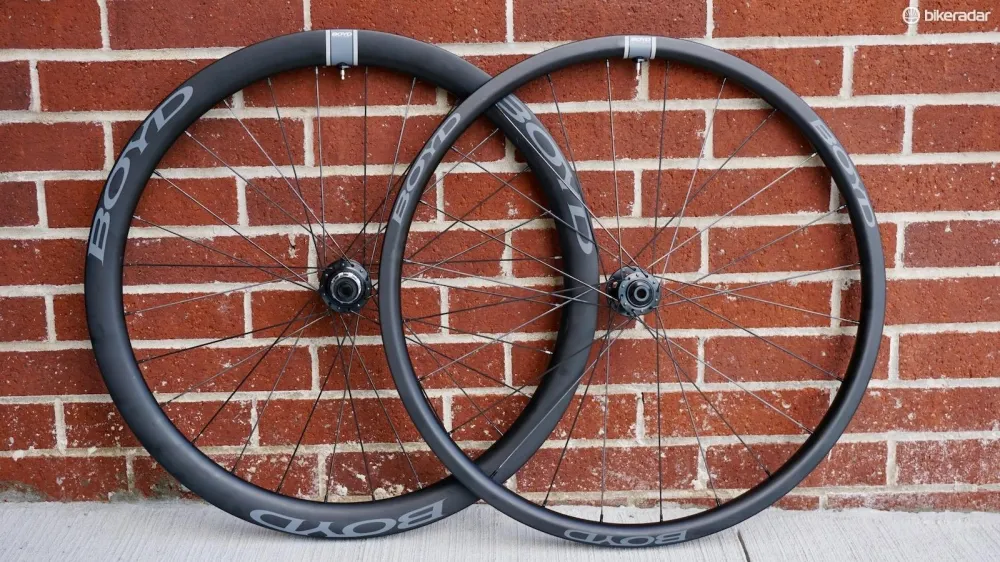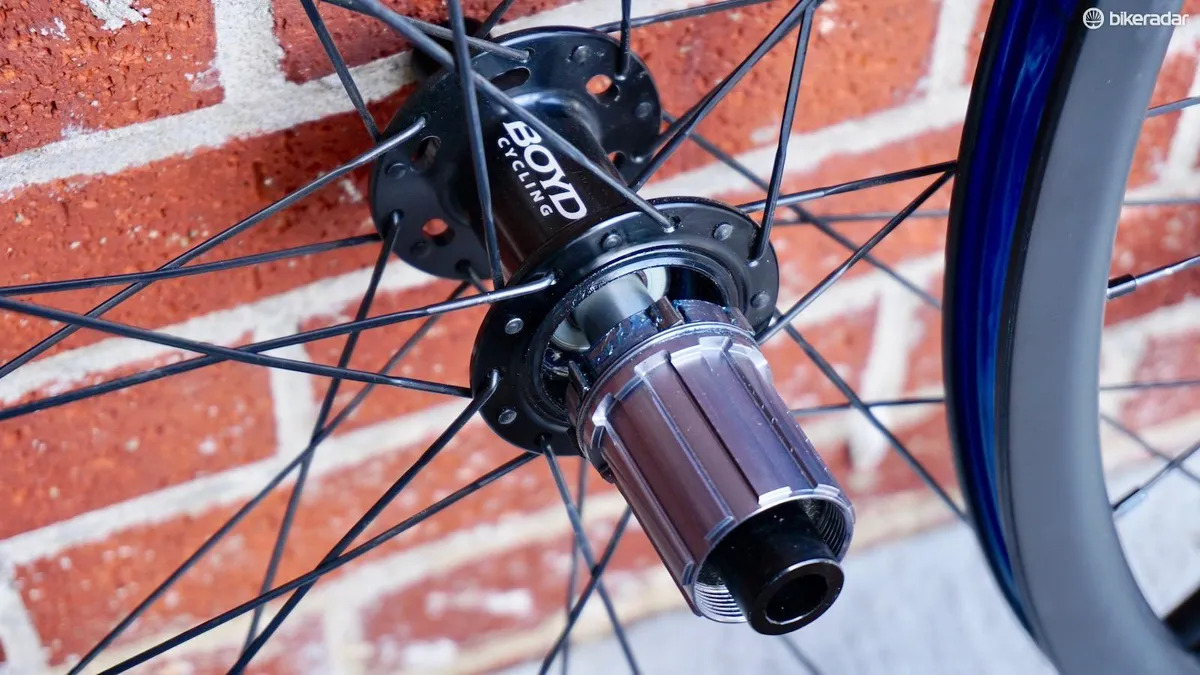Boyd Cycling is a family-owned wheel company in South Carolina, USA, with hand-built wheels that come in various configurations. No longer using an ‘open mold’ operating model, Boyd claims to pass savings on to riders by avoiding high-cost sports marketing sponsorships and large corporate overhead.
- Stan’s NoTubes Avion Disc Pro wheelset review
- Zipp 202 Firecrest CCL Disc wheels review
- Specialized Roval CLX32 Disc review
Boyd claims the same aerodynamic performance of pricier competitors without a compromise in hub, spoke, or rim quality. But with prices at nearly 20-40 percent less than the most popular competitors, I figured something had to give.
Boyd has targeted riders who want the benefits of carbon rim shapes but either don’t buy in to some of the marketing claims of the big guys or can’t rationalize some of the wilder price tags.
After all, does $3K really buy that much more free speed than $1,600? Or is it just a matter of fancy logos?
Mostly accurate claims
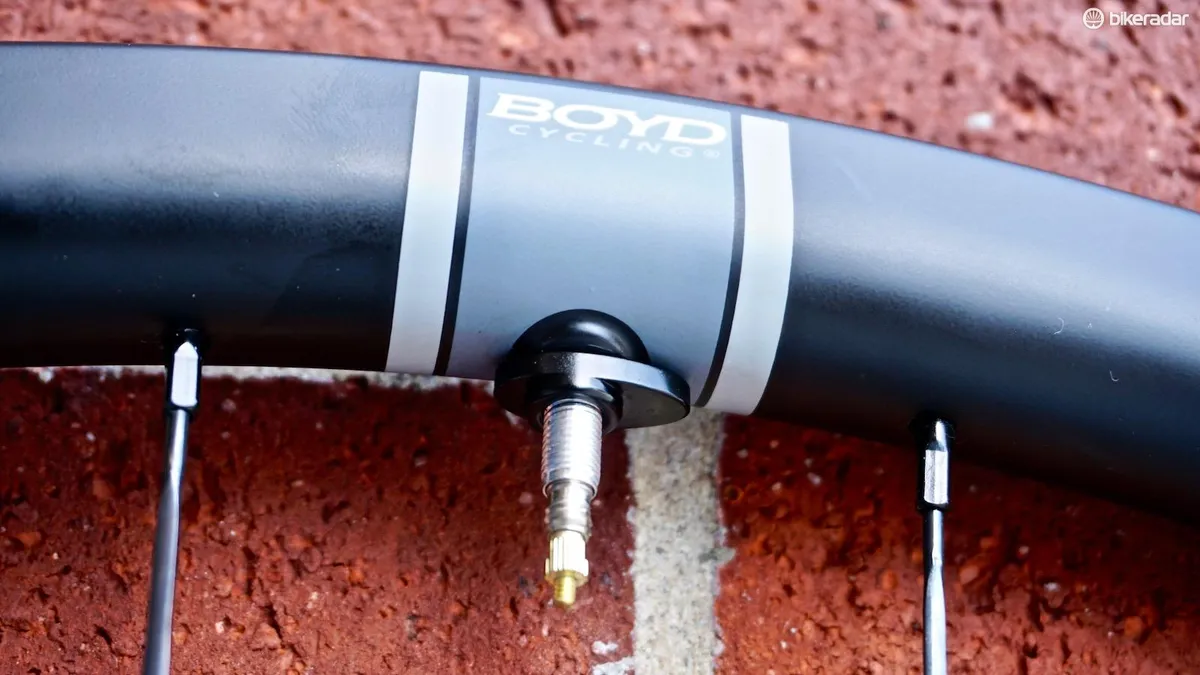
For test I received 28 (front) and 44mm (rear) carbon clincher disc wheels with tubeless tires, rotors and cassette. After stripping it all down it was time to dig a little.
And while it should go without saying, the wheels were also perfectly dished. You’d be surprised…
The wheels each have a max width of 27mm just a few millimeters below the spoke bed, tapering to 25mm at the tire bead. What is a bit unfortunate is that the inner width is only 17mm (18mm claimed) front and 19.4mm (19mm claimed) rear. This means there’s a lot of material at the tire bead, possibly as a result of using the same mold for disc and non-disc rim manufacturing.
This of course makes them heavier than necessary, but details like this are the subtle nuances that can separate the big boys from the challenger brands.
Boyd passed the non-riding tests: marketing authenticity (claimed weight) and overall build consistency (roundness, trueness and spoke tension).
The wheelset has a claimed weight of 1,599g and my measurements averaged at 1,608g with rim strips, tubeless valves and its nifty valve-retaining nut.
As for roundness and tension, two tension meters confirmed a tolerance of less than 3 percent difference within each side of the wheel, which is pretty darn good.
My tension meters aren’t calibrated as often as they should be, so I’ll refrain from making anything other than relative claims.
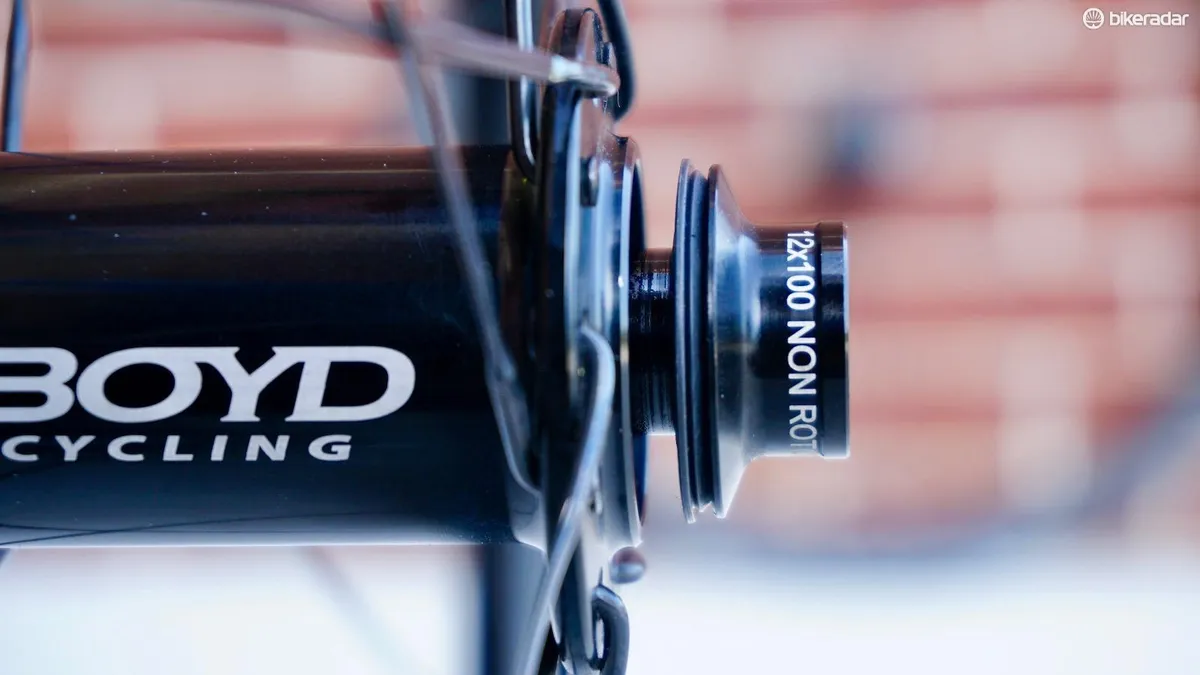
Tolerance for roundness was less than 0.5mm for both front and rear, which is well below what a rider could perceive and likely less than a trained eye could notice. Only after putting them on the gauges could I notice, and that’s cheating.
And while it should go without saying, the wheels were also perfectly dished. You’d be surprised…
The reason these details matter, in my opinion, is that riders often see black and white with wheels — it’s either from a major manufacturer like Zipp or Mavic, or it’s open mold junk. I believe Boyd has found a legitimate middle ground.
As for serviceability, Boyd uses Sapim spokes (CX or CX-Ray) with external nipples. I’ve always questioned the benefit of internal nipples, versus the hassle of removing a tire, tube, and rim strip just for truing.
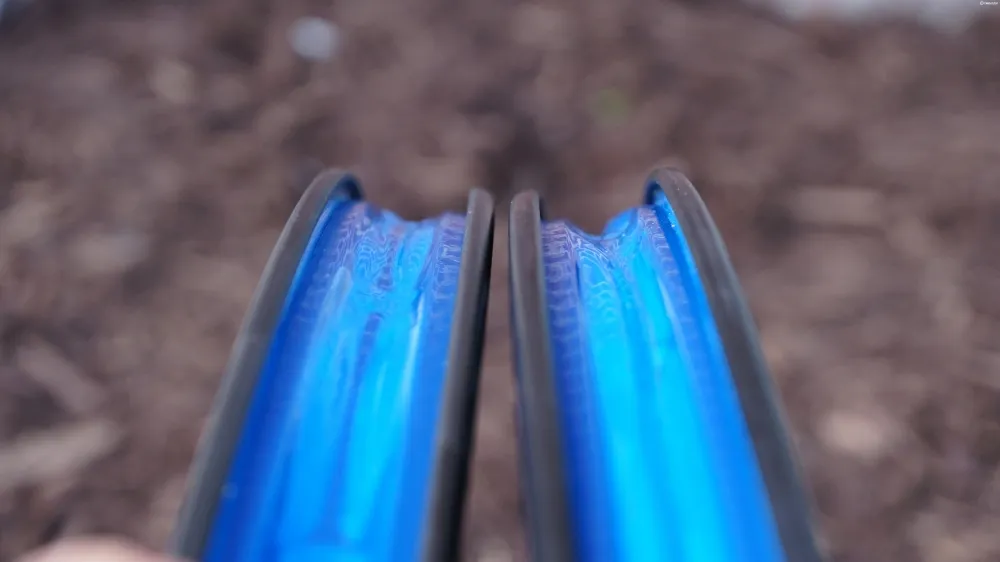
A middle-ground contender
Of course there are plenty of options for more money. But looking at companies like ROL and Flo that also focus on the middle ground, it seems Boyd has hit a terminal weight for the price point, as both competitors offer a similar product for a similar expense.
The set that Boyd sent would retail for $1,650 / £1,540, which is, relatively speaking, on the attainable side of the spectrum.
A two-year warranty covers all its wheels for typical use scenarios.
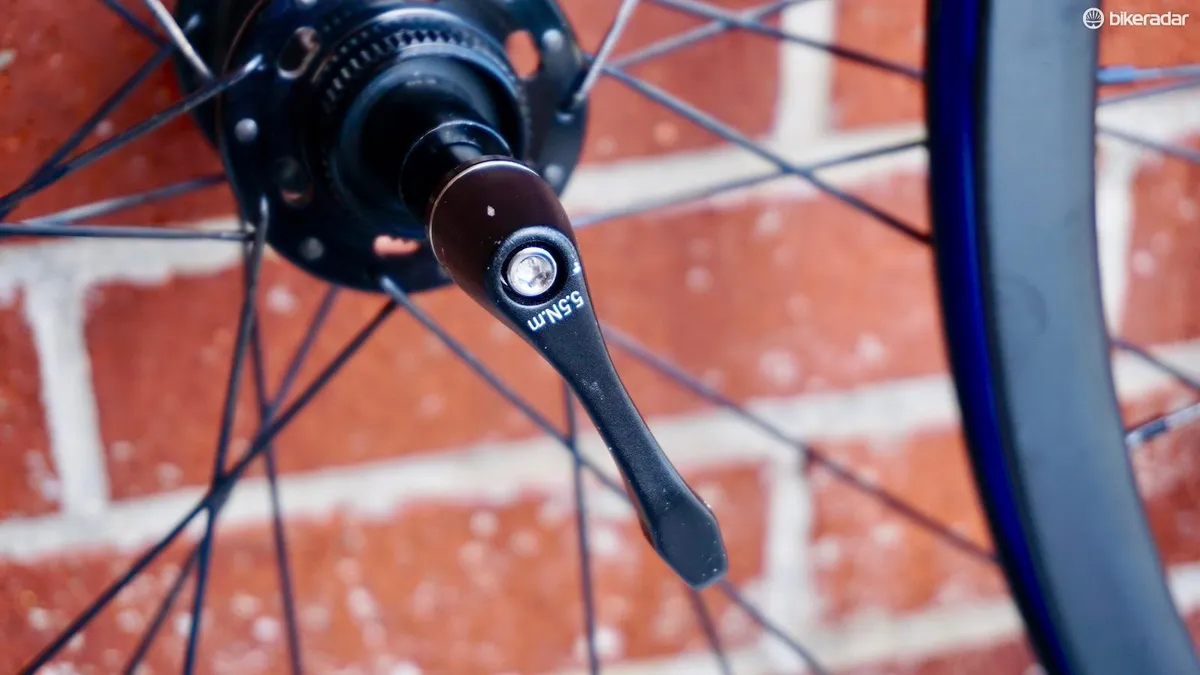
Boyd sells consumer-direct and through shops. Boyd also has a demo program, which is always a great way to understand what you’re getting for your money.
Durable and predictable
One thing I noticed is that crosswind stability is not up to the level of the ENVE 3.4 disc wheels I had been on, but as I keep highlighting, at nearly double the price this is expected.
Always keep in mind the ‘pick two’ rule: light, durable or cheap. The Boyds aren’t the lightest, but mechanically they seem sound (only 600 miles) and they’re relatively cost effective as far as carbon wheels go.
In terms of updating a bike, the Boyd wheelset definitely outperformed the DT Swiss Spline 24 wheels they replaced. They were smoother, lighter and perceptibly faster in every wind condition. The MSRP on the DT Swiss wheels is $1,000 less, the Boyds should be better.
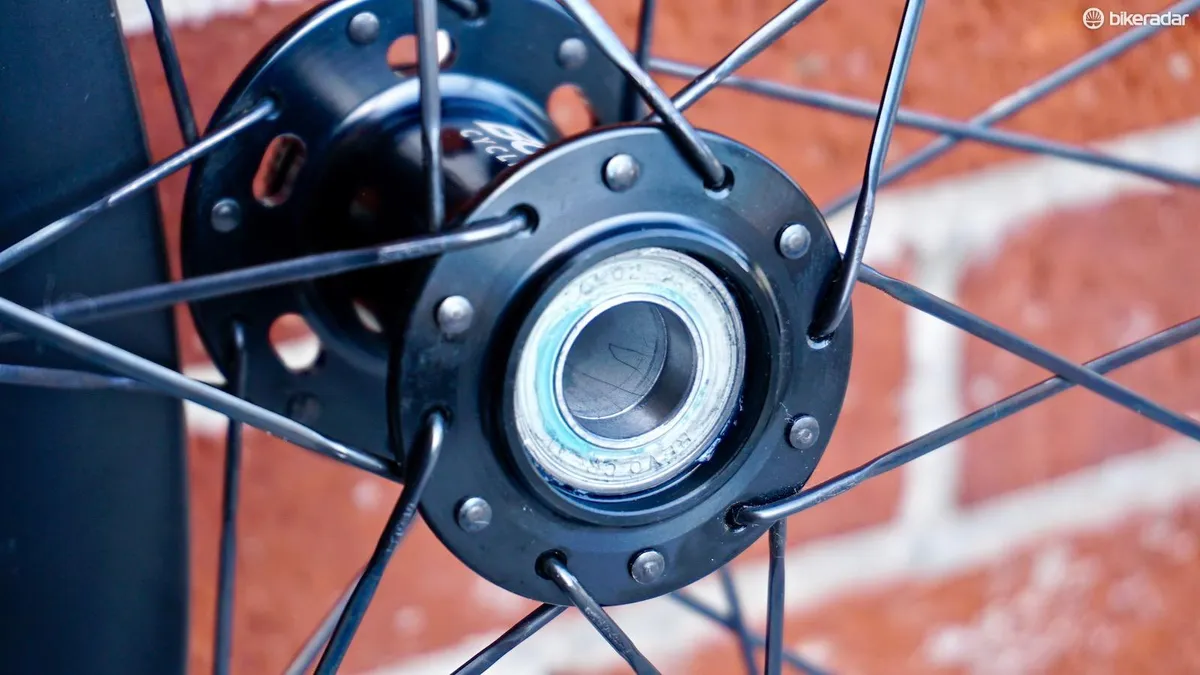
As I’ve said before, without any true standout features like extreme lightweight or super-wide internal width, wheels have to be pretty flawed to say much beyond ‘they roll’. After nearly 600 miles on the Boyd 28/44 tubeless setup I had no freehub issues, no bearing drag, and no need to put them on the truing stand, despite several efforts testing their integrity.
If you’re looking to give your bike a fresh look, find a demo center and try them out for yourself. As a guy who’s built many ‘open mold’ rims, I can assure you there are plenty of inferior options out there.
Note that there is a 225lb (102kg) limit for the 28mm wheel and 250lb (113kg ) limit for the 44mm.
